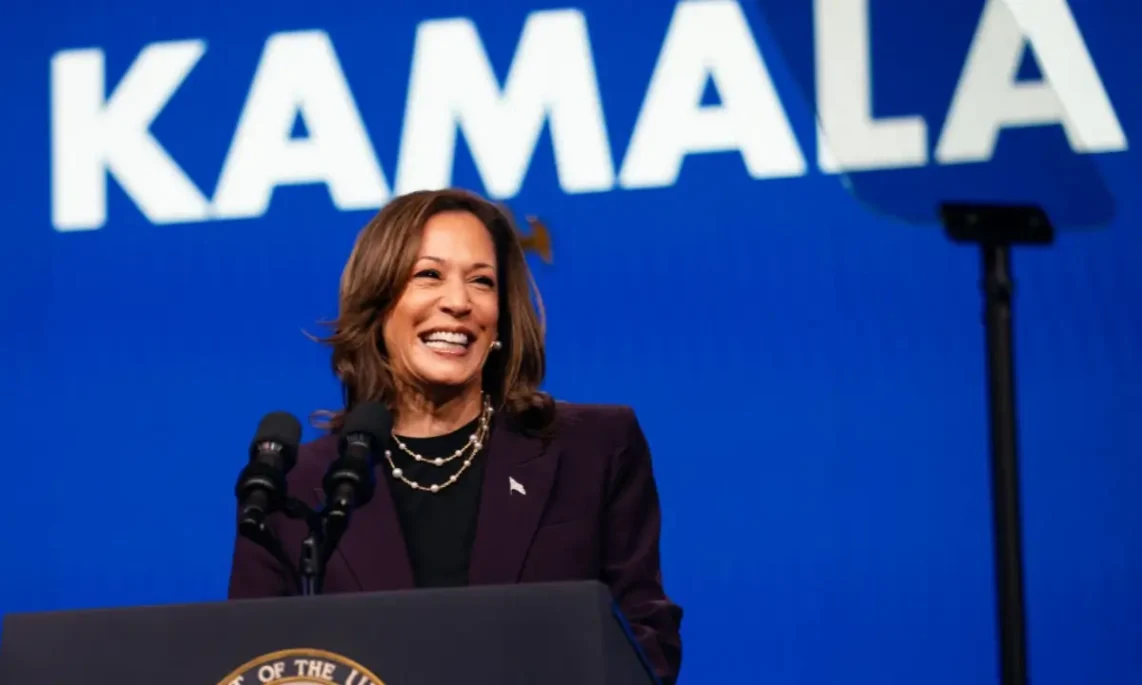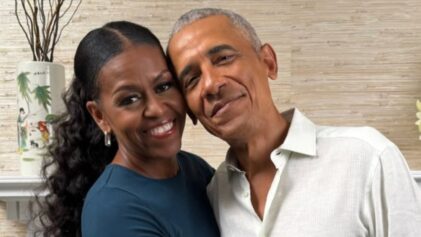On Monday Vice President Kamala Harris rolled out her “Opportunity Agenda
for Black Men” that promises to provide them with tools to achieve financial freedom, protect their rights and improve their health.
Reactions to her proposal were as divided as the Black electorate, who alternately viewed it as a desperate campaign tactic to win over reticent Black male voters, or sound policy ideas that are responsive to their needs.

With polls showing a virtual tie with Donald Trump in the presidential race, and softening of support among Black men, Harris has been on a breakneck blitz of Black media and gathering spots over the past two weeks, including “Black Men Huddle Up” events this week in Charlotte, Detroit, Atlanta, and Philadelphia, and her upcoming interview with popular “Breakfast Club” podcast co-host Charlamagne Tha God on Tuesday in Detroit, noted Politico.
Her nine-page agenda for Black men includes:
- Providing 1 million small business loans forgivable up to $20,000 “to Black entrepreneurs and others to start a business.”
- Training and mentorship programs that “help Black men get good-paying jobs in high-demand industries and lead their communities,” including becoming teachers.
- Focusing on health issues that disproportionately impact Black men, such as sickle cell disease, diabetes, mental health, prostate cancer.
- Legalizing recreational marijuana and creating related business opportunities for Black Americans “in this new industry.”
- Supporting cryptocurrency regulations that protect Black men who invest in and own these assets.
While the race for the White House is tight, according to a new CBS News poll and analysis, likely Black voters still plan to vote heavily Democratic, as in past years, and currently support Harris at the same rate (87 percent) as they did Biden in 2020. “However, the likelihood of turnout for Black voters lags that of White voters, suggesting perhaps there is more for Harris’ campaign to do in activating these voters,” CBS noted.
Some erosion in the Black electorate has come from Black men: while 83 percent of Black women in a recent New York Times/Siena poll favor Harris over Trump, only 70 percent of Black men do. And a recent NAACP poll that found one in four Black men under 50 support Trump over Harris.
Many people express concern that Harris’ latest proposal could turn off some Black voters, who find it desperate and off-putting, in the same way that former President Obama’s lecturing Black men who are “thinking about sitting out” the election or voting for Trump at a rally in Pennsylvania last week produced a backlash among some Black men.
Barack Obama SOUNDS THE ALARM, says energy is down with black men:
— Charlie Kirk (@charliekirk11) October 11, 2024
“That seems to be more pronounced with the brothers…”
He then says black men should vote for Kamala because she knows the “struggles” of being black.
Pure identity politics from Obama. pic.twitter.com/LvlSUVZKBx
“I don’t know. The substance might be ok but I’m thinking about the optics of this for campaign purposes. The timing may make it come off as desperation, damage control, or just more pandering,” posted @SublimeThought5 on X.
“I hope nobody falls for this last ditch effort,” posted @rhondac310 on Instagram. “After they brought out Obama to chastise Black men they figured they try a different approach like um…earning the vote. It’s giving lip service tho.”
“Sorry, Obama,” said Rob Smith, a Black Trump supporter, in a video reel posted on Facebook of several Black men turned off by Obama’s speech in Pittsburgh, where the former president told Black voters, “You’re thinking about sitting out or supporting somebody who has a history of denigrating you, because you think that’s a sign of strength, because that’s what being a man is? Putting women down? That’s not acceptable.”
“No amount of lecturing or bullying or shaming that you can do is going to make me change that decision,” said Smith. “I am not afraid to vote for Kamala Harris because she is a woman. I refuse to vote for Kamala Harris because she has spent the last four years destroying this country.”
Black Voters Matter co-founder Cliff Albright noted in a thread on X that “Some doubters—including some w/ other motives—will shout “too late”. They will ignore 1) many of these policies are extensions of things Harris has *already* done/worked on, and 2) that this agenda is the product of *months* of discussions w/ Black men.”
“While honest people can disagree whether it’s “enough” … we should be skeptical of anyone dismissing her plan while simultaneously having NO critique of the lifelong racist offering NO policy 4 us & whose policies directly HARM (sometimes kill) Black men,” he said.
Some people question the legality of what Harris proposed, noting that recent decisions in civil rights cases have barred preferential treatment for Black or minority applicants to economic incentive programs, while others pointed out that her small business loans would benefit everyone.
“I gotta hand it to her,” posted @Fla.’s Favorite Teacher. Conservative. “She’s trying everything to get their vote at the 9th hour. Too bad most of this has to be approved by Congress, which she knows.”
“Challenge with this is that people can see through it,” posted @DreAllDay on X. “She is struggling to get black male support, so has thrown these out there as bait to fix the issue. Also, Kamala is on the record, stating that she would not make anything specifically “for“ black people, as those things would also apply to everyone.”
Of critics who say Harris should have already accomplished what’s in her economic agenda, Wade said, “She can’t make those calls as vice president. … You need to go back and read your Constitution. You must have skipped school and skipped civics.”
Some Black men gave Harris credit for taking a stab at meaningful policy measures to address challenging issues that they face, and saw her proposal as a starting point.
“VP Harris’ plan for Black men is significant 1st step in the right direction,” posted civil rights attorney and former prosecutor Charles Coleman, Jr. an MSNBC legal analyst. “It shows that, indeed, more can be done, and there is space to speak to us. It will require work to ensure the concepts become policy and there is accountability.”
“Her plan has some great points but it misses the mark on how [B]lack men are truly feeling,” posted Black Chicago investor Ja’Mal Green on X. “I do give her props for releasing one and I would love to see the other side take a crack at it.”


